Related Research Articles
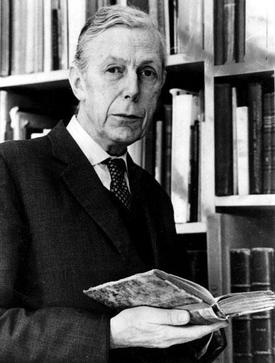
Anthony Frederick Blunt, styled Sir Anthony Blunt KCVO from 1956 to November 1979, was a leading British art historian and Soviet spy.
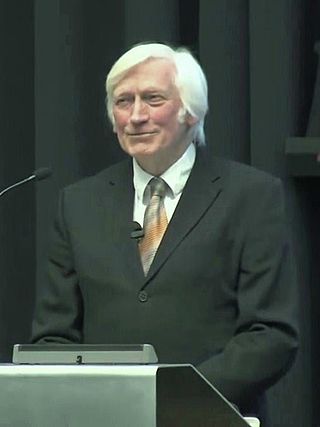
Richard James Overy is a British historian who has published on the history of World War II and Nazi Germany. In 2007, as The Times editor of Complete History of the World, he chose the 50 key dates of world history.
Sir Geoffrey Rudolph Elton was a German-born British political and constitutional historian, specialising in the Tudor period. He taught at Clare College, Cambridge, and was the Regius Professor of Modern History there from 1983 to 1988.
Dame Linda Jane Colley, is an expert on British, imperial and global history from 1700. She is currently Shelby M. C. Davis 1958 Professor of History at Princeton University and a long-term fellow in history at the Swedish Collegium for Advanced Study in Uppsala. She previously held chairs at Yale University and at the London School of Economics. Her work frequently approaches the past from inter-disciplinary perspectives.
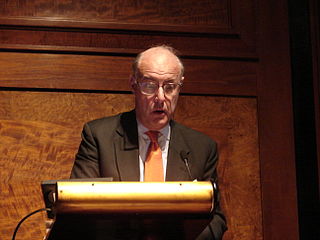
Sir David Nicholas Cannadine is a British author and historian who specialises in modern history, Britain and the history of business and philanthropy. He is currently the Dodge Professor of History at Princeton University, a visiting professor of history at Oxford University, and the editor of the Oxford Dictionary of National Biography. He has been the president of the British Academy since 2017, the UK's national academy for the humanities and social sciences. He also serves as the chairman of the trustees of the National Portrait Gallery in London and vice-chair of the editorial board of Past & Present.

Sir Richard John Evans is a British historian of 19th- and 20th-century Europe with a focus on Germany. He is the author of eighteen books, including his three-volume The Third Reich Trilogy (2003–2008). Evans was Regius Professor of History at the University of Cambridge from 2008 until his retirement in 2014, and President of Cambridge's Wolfson College from 2010 to 2017. He has been Provost of Gresham College in London since 2014. Evans was appointed Knight Bachelor for services to scholarship in the 2012 Birthday Honours.
Clarence Crane Brinton was an American historian of France, as well as an historian of ideas. His most famous work, The Anatomy of Revolution (1938) likened the dynamics of revolutionary movements to the progress of fever.
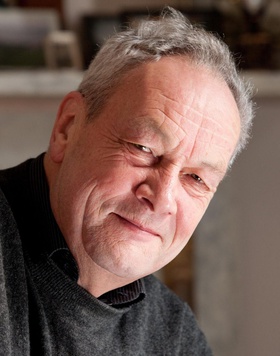
Norman Stone was a British historian and author. He was Professor of European History in the Department of International Relations at Bilkent University, having formerly been a professor at the University of Oxford, a lecturer at the University of Cambridge, and an adviser to British Prime Minister Margaret Thatcher. He was a board member of the Center for Eurasian Studies (AVIM), and devoted some of the last years of his life to promoting Armenian genocide denial.
Robert Nigel Gildea is professor of Modern History at the University of Oxford and is the author of several influential books on 20th century French history.
Richard Peter Treadwell Davenport-Hines is a British historian and literary biographer, is a Quondam Fellow of All Souls College, Oxford.

John Naughton is an Irish academic, journalist and author. He is a senior research fellow in the Centre for Research in the Arts, Social Sciences, and Humanities at Cambridge University, Director of the Press Fellowship Programme at Wolfson College, Cambridge, Emeritus Professor of the Public Understanding of Technology at the British Open University, adjunct professor at University College, Cork and the Technology columnist of the London Observer newspaper.

Richard Charles Cobb was a British historian and essayist, and professor at the University of Oxford. He was the author of numerous influential works about the history of France, particularly the French Revolution. Cobb meticulously researched the Revolutionary era from a ground-level view sometimes described as "history from below".
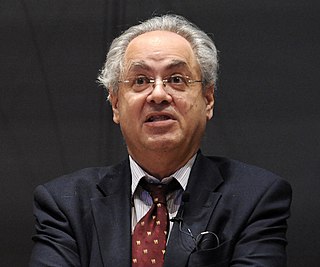
David Abulafia is an English historian with a particular interest in Italy, Spain and the rest of the Mediterranean during the Middle Ages and Renaissance. He spent most of his career at the University of Cambridge, rising to become a professor at the age of 50. He retired in 2017 as Professor Emeritus of Mediterranean History. He is a Fellow of Gonville and Caius College, Cambridge. He was Chairman of the History Faculty at Cambridge University, 2003-5, and was elected a member of the governing Council of Cambridge University in 2008. He is visiting Beacon Professor at the new University of Gibraltar, where he also serves on the Academic Board. He is a visiting professor at the College of Europe.

John Adam Tooze is an English historian who is a professor at Columbia University, Director of the European Institute and nonresident scholar at Carnegie Europe. Previously, he was Reader in Twentieth-Century History at the University of Cambridge and Gurnee Hart Fellow in History at Jesus College, Cambridge. After leaving Cambridge in 2009, he spent six years at Yale University as Professor of Modern German History and Director of International Security Studies at the MacMillan Center for International and Area Studies, succeeding Paul Kennedy. Through his books and his online newsletter (Chartbook), he reaches a varied audience of historians, investors, administrators, and others.
Julian Timothy Jackson is a British historian who is a fellow of the British Academy and of the Royal Historical Society. He is a professor of History at Queen Mary, University of London, he is one of the leading authorities on twentieth-century France.

Richard Ned Lebow is an American political scientist best known for his work in international relations, political psychology, classics and philosophy of science. He is Professor of International Political Theory at the Department of War Studies, King's College London, Honorary Fellow of Pembroke College, University of Cambridge, and James O. Freedman Presidential Professor Emeritus at Dartmouth College. Lebow also writes fiction. He has published a novel and collection of short stories and has recently finished a second novel.
The Society for Army Historical Research is a learned society, founded in 1921 to foster "interest in the history and traditions of British and Commonwealth armies, and to encourage research in these fields." It is one of the oldest societies of its kind. Past members include notable British Field Marshals Wavell, Auchinleck and Templer. The current president is Lieutenant-General Sir Barney White-Spunner and Major-General Ewan Carmichael is Chairman of its Council. The Patron of the Society is Field Marshal the Duke of Kent.

Catherine Anne Merridale, FBA is a British writer and historian with a special interest in Russian history.
Paul Andrew Readman, FRHistS, is a political and cultural historian. He is Professor in Modern British History at King's College London, where he was Head of the History Department (2008–12) and as of 2018 is Vice-Dean for Research.
References
- ↑ Professor Richard Vinen. King's College London. Retrieved 21 May 2015.
- ↑ Carl Levy, "1918–1945–1989: The Making and Unmaking of Stable Societies in Western Europe", in Carl Levy and Mark Roseman (eds), Three Postwar Eras in Comparison: Western Europe, 1918–1945–1989 (Basingstoke: Palgrave, 2001), p. 2.
- 1 2 3 "National Service: Conscription in Britain, 1945–1963, by Richard Vinen | Books". Times Higher Education. 28 August 2014. Retrieved 21 May 2015.
- ↑ "Acknowledgements" in Richard Vinen, Thatcher's Britain: The Politics and Social Upheaval of the Thatcher Era (London: Pocket Books, 2013).
- ↑ "Professor Frank William Vinen FRS CPhys Hon.FInstP (1930–2022)", Institute of Physics . Retrieved 5 March 2023.
- 1 2 "Professor Richard Vinen", King's College London. Retrieved 20 September 2018.
- 1 2 3 4 "Richard Vinen Curriculum Vitae", Sciences Po (2015). Retrieved 20 September 2018.
- ↑ "The politics of French Business 1936–1945", EThOS (British Library). Retrieved 20 September 2018.
- ↑ Richard Vinen, The Politics of French Business, 1936–1945 (Cambridge: Cambridge University Press, 1991), p. xiii.
- ↑ "National Service: Conscription in Britain 1945–1963 by Richard Vinen, review: 'a little laborious'". Telegraph. Retrieved 21 May 2015.
- ↑ Richard Davenport-Hines. "National Service: Conscription in Britain 1945–1963 by Richard Vinen – review | Books". The Guardian. Retrieved 21 May 2015.
- ↑ "King's College London - Professor Richard Vinen wins Wolfson Prize and Templer Medal".
- ↑ For the announcement, see Journal of Contemporary History, vol. 47, no. 3 (2012), p. 504. The article appeared in vol. 46, no. 3 (2011), pp. 531–554.
- ↑ "Autumn lectures on Irish, Public, and Modern British history", On History (Institute of Historical Research), 9 November 2018. Retrieved 9 February 2021.
- ↑ "The 2020 Historical Research lecture: Writing histories of 2020: First responses and early perspectives", Historical Research , vol. 93, no. 262 (2020), pp. 786–806.
- ↑ Nord, Philip (1 January 1997). "Review of Bourgeois Politics in France, 1945-1951". French Politics and Society. 15 (1): 88–90. JSTOR 42844623.
- ↑ Le Ber, Jocelyne (1 January 2008). "Review of The Unfree French: Life under the Occupation". Rocky Mountain Review. 62 (1): 92–94. JSTOR 20479508.